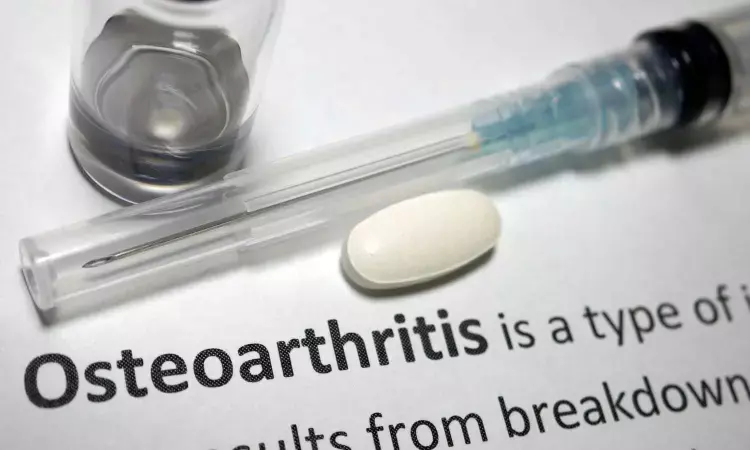- Home
- Medical news & Guidelines
- Anesthesiology
- Cardiology and CTVS
- Critical Care
- Dentistry
- Dermatology
- Diabetes and Endocrinology
- ENT
- Gastroenterology
- Medicine
- Nephrology
- Neurology
- Obstretics-Gynaecology
- Oncology
- Ophthalmology
- Orthopaedics
- Pediatrics-Neonatology
- Psychiatry
- Pulmonology
- Radiology
- Surgery
- Urology
- Laboratory Medicine
- Diet
- Nursing
- Paramedical
- Physiotherapy
- Health news
- Fact Check
- Bone Health Fact Check
- Brain Health Fact Check
- Cancer Related Fact Check
- Child Care Fact Check
- Dental and oral health fact check
- Diabetes and metabolic health fact check
- Diet and Nutrition Fact Check
- Eye and ENT Care Fact Check
- Fitness fact check
- Gut health fact check
- Heart health fact check
- Kidney health fact check
- Medical education fact check
- Men's health fact check
- Respiratory fact check
- Skin and hair care fact check
- Vaccine and Immunization fact check
- Women's health fact check
- AYUSH
- State News
- Andaman and Nicobar Islands
- Andhra Pradesh
- Arunachal Pradesh
- Assam
- Bihar
- Chandigarh
- Chattisgarh
- Dadra and Nagar Haveli
- Daman and Diu
- Delhi
- Goa
- Gujarat
- Haryana
- Himachal Pradesh
- Jammu & Kashmir
- Jharkhand
- Karnataka
- Kerala
- Ladakh
- Lakshadweep
- Madhya Pradesh
- Maharashtra
- Manipur
- Meghalaya
- Mizoram
- Nagaland
- Odisha
- Puducherry
- Punjab
- Rajasthan
- Sikkim
- Tamil Nadu
- Telangana
- Tripura
- Uttar Pradesh
- Uttrakhand
- West Bengal
- Medical Education
- Industry
New drug therapies for osteoarthritis: Epilepsy drug promising for slowing joint degeneration

USA: In a recent study published in Nature, Yale researchers have described the identification of a drug target that may alleviate joint degeneration associated with osteoarthritis. The findings open new avenues for disease-modifying treatments
Osteoarthritis is a debilitating condition that afflicts as many as 30 million people in the United States alone. Pain relievers and lifestyle changes, such as exercise and reduced excess weight, have long been the therapies most commonly used to treat the joint stiffness and pain caused by degenerative disease, but there is a pressing need for therapies that can prevent joint breakdown that occurs in osteoarthritis.
It is known that specialized proteins known as sodium channels found in cell membranes produce electrical impulses in “excitable” cells within muscles, the nervous system, and the heart. And in previous research, Yale’s Stephen G. Waxman identified the key role of one particular sodium channel, called Nav1.7, in the transmission of pain signals.
Now, the labs of Chuan-Ju Liu, the Charles W. Ohse Professor of Orthopedics, and Waxman, the Bridget M. Flaherty Professor of Neurology and professor of neuroscience and pharmacology, both at Yale School of Medicine, have found that the same Nav1.7 channels are also present in non-excitable cells that produce collagen and help maintain the joints in the body.
Osteoarthritis, the most common form of arthritis, is a degenerative disease caused by the breakdown of cartilage that eases friction between the joints. It occurs most commonly in the hands, hips, and knees.
In the new study, the researchers deleted Nav1.7 genes from these collagen-producing cells and significantly reduced joint damage in two osteoarthritis models in mice.
They also demonstrated that drugs used to block Nav1.7- including carbamazepine, a sodium channel blocker currently used to treat epilepsy and trigeminal neuralgia -also provided substantial protection from joint damage in the mice.
“The function of sodium channels in non-excitable cells has been a mystery,” Waxman said. “This new study provides a window on how small numbers of sodium channels can powerfully regulate the behavior of non-excitable cells.”
“The findings open new avenues for disease-modifying treatments,” added Wenyu Fu, a research scientist in the Liu laboratory and first author of the study.
Reference:
Wenyu Fu, Dmytro Vasylyev, Yufei Bi, Mingshuang Zhang, Guodong Sun, Asya Khleborodova, Guiwu Huang, Libo Zhao, Renpeng Zhou, Yonggang Li, Shujun Liu, Xianyi Cai, Wenjun He, Min Cui, Xiangli Zhao, Aubryanna Hettinghouse, Julia Good, Ellen Kim, Eric Strauss, Philipp Leucht, Ran Schwarzkopf, Edward X. Guo, Jonathan Samuels, Wenhuo Hu, Mukundan Attur, Stephen G. Waxman, Chuan-ju Liu. Nav1.7 as a chondrocyte regulator and therapeutic target for osteoarthritis. Nature, 2024; DOI: 10.1038/s41586-023-06888-7.
Dr Kamal Kant Kohli-MBBS, DTCD- a chest specialist with more than 30 years of practice and a flair for writing clinical articles, Dr Kamal Kant Kohli joined Medical Dialogues as a Chief Editor of Medical News. Besides writing articles, as an editor, he proofreads and verifies all the medical content published on Medical Dialogues including those coming from journals, studies,medical conferences,guidelines etc. Email: drkohli@medicaldialogues.in. Contact no. 011-43720751


